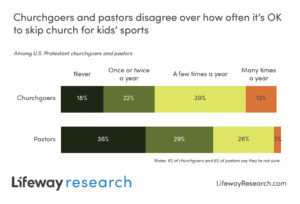
GAINESVILLE, Ga. (BP)–Investing isn’t for the squeamish these days, and bear stock markets never are easy to endure. In a bear market, stock prices are falling or are expected to fall even though they may be interrupted by some short intervals of higher prices. On the other hand, a bull market is a period of optimism in the stock market, when prices are rising or are expected to rise.
Many investors respond emotionally during bear market downturns and feel they have to “do something” even if it turns out wrong. Not the best strategy! The best action may be to ride things out by evaluating a proper risk tolerance and establishing an appropriate asset allocation policy. But often that’s easier said than done, especially in a bear market.
Losses to IRAs, 401(k)s and mutual funds have impacted the plans and dreams that many have had for early retirement — or just plain adequate retirement. Investments for the kid’s college costs have dwindled, and some face the prospect of shifting gears from retiring with an adequate income to having to work until they are 70 or older. Most of us know that some sort of revision in our plans is needed but many simply don’t know what to do.
Feed the bear, tuck in your arms, or play dead?
Large animals like bears are unpredictable. If you encounter a bear, tips from experts include the following: Stay calm; stop or slowly back away; and never run, because that might prompt an attack. Make yourself look bigger: hold your jacket out like wings and stand on tiptoe. Arizona Game and Fish Department spokesman Pat O’Brien says, “Each situation can be different. We offer these tips so people are armed with some knowledge. However, you need to use your own judgment and act accordingly.”
Bear markets aren’t predictable either, but you can’t just hold your jacket out and stand on tiptoe and solve your situation. Ultimately, much like encountering the wildlife bear, you’ll simply have to “use your own judgment and act accordingly.” However, if you are wary of the bear market, keep in mind that the United States continues to have the strongest, largest and most prosperous economy in the world. Focus on long-term strategy and stick to it.
No one really knows what markets will do in the short term, and for every market “expert” that’s bullish, there’s one that is bearish. If you focus on short-term forecasts, your emotions might tempt you to act counter to your strategy. Resist the appeal to react to short-term fluctuations; however, if you must react, do so only in very small measure. No one can guarantee future performance, but the likelihood is that the markets will rebound.
Of course, that’s not much comfort for older investors who’ve seen a lot of their retirement savings vanish recently. Older investors who rely on markets to provide retirement income should spend time carefully validating their asset mixes and diversification and then make any appropriate adjustments on that basis.
On the other hand, younger investors should consider putting money aside for the long term and staying focused on their plans. When prices are low, more stock can be bought for less money. Eventually the markets will stabilize and resume their upward movement, and today’s investor will likely come out ahead.
Financial illiteracy
One of the reasons that God has raised up the ministry of Crown Financial Ministries is to help God’s people overcome the illiteracy among Christians regarding God’s biblical financial principles. Long before the events of the past two years, a great need has existed for believers to know what God’s Word says about finances.
The Honorable Jonathan Miller, treasurer of the Commonwealth of Kentucky, recently gave testimony at an U.S. Senate hearing about the problem of financial illiteracy. Here’s a portion of his testimony.
“[F]inancial illiteracy is not simply a problem faced by our youngest generation of Americans. In fact, it is an epidemic. When the country’s national savings rate during a period of unprecedented prosperity dips below 1 percent, and when 12 percent of Americans have no retirement savings whatsoever, we realize that financial illiteracy could leave many American seniors desperately needing financial assistance.
“When a growing number of individuals — particularly the poor, elderly and minority groups — fall victim to the scams of predatory lending, we realize that financial illiteracy leaves many Americans vulnerable to the loss of their homes or retirement savings. And when the total household debt reaches $7.3 trillion, with an average [household that carries a credit card balance] having over $8,000 in debt, we realize that financial illiteracy has a devastating effect on our nation’s economy.”
God’s plan
Whether you’re in the younger or older category, debt-free living is still God’s plan for his people. The blessings of debt freedom extend beyond finances to the spiritual and marital realms as well. No one who is financially bound can be spiritually free, and the effect of financial bondage on marriage relationships is measurable in the statistics of failed marriages.
Therefore, God’s people need to make debt freedom and saving money top priorities. During difficult financial times it’s more important than ever to understand and abide by biblical principles to help save money and not waste it:
Continue giving. When we recognize that God owns everything and all blessings come from him, our role as good managers, or stewards, means giving back to God a portion of what he has entrusted to us. Giving is an external testimony that we believe God owns both the material and spiritual things of our lives and that he is the source of all our supply.
Remember that small savings grow. Save at least 5 percent (preferably 10 percent) of your income in a money market or interest-bearing savings account. Even small amounts will accumulate, so set a savings goal to have three- to six-months’ income set aside.
One of the best ways to get the same effect of making interest is by eliminating interest payments. For example:
— You will “earn” money by paying off credit card balances. In effect, you receive a return of 13-21 percent — money you would have been paying to others.
— Make extra monthly home mortgage payments. An extra monthly payment of $100 on a 30-year, $150,000, 6-percent loan saves almost $73,000 in interest and reduces the loan by seven years. If you can’t commit an additional $100 each month, just round your payment up to the nearest hundred.
— Pay off installment loans. Interest on car loans isn’t tax deductible and rates are generally higher than home mortgages. Pay off these loans as soon as possible by rounding up your monthly payment to the nearest hundred and then, and if you can, add $50 to that amount.
Help is available
With so many resources for financial education available, including the Internet, there’s no excuse for financial illiteracy. This is especially true for Christians; because, in addition to every other resource, we have the guidance of God’s Word in the area of finances.
Crown Financial Ministries can’t solve all the problems of financial illiteracy; but we are able to help God’s people become the best possible stewards of the financial resources entrusted to them by the Lord. You may contact Crown at www.crown.org and find many valuable resources, online tools and helpful links. Or call us at 1-800-722-1976, because we are here to serve you. And we know that good stewards will sow generously into God’s work, and that will enable the church to move closer to fulfilling the Great Commission.
–30–
Burkett is chairman of the board of Crown Financial Ministries. A Southern Baptist layman based in Gainesville, Ga., Burkett is the host of the national “Money Matters” radio program and author of two resources published by LifeWay Christian Resources of the Southern Baptist Convention: “How Much Is Enough? 30 Days to Personal Revival” and “Jesus on Money.”














